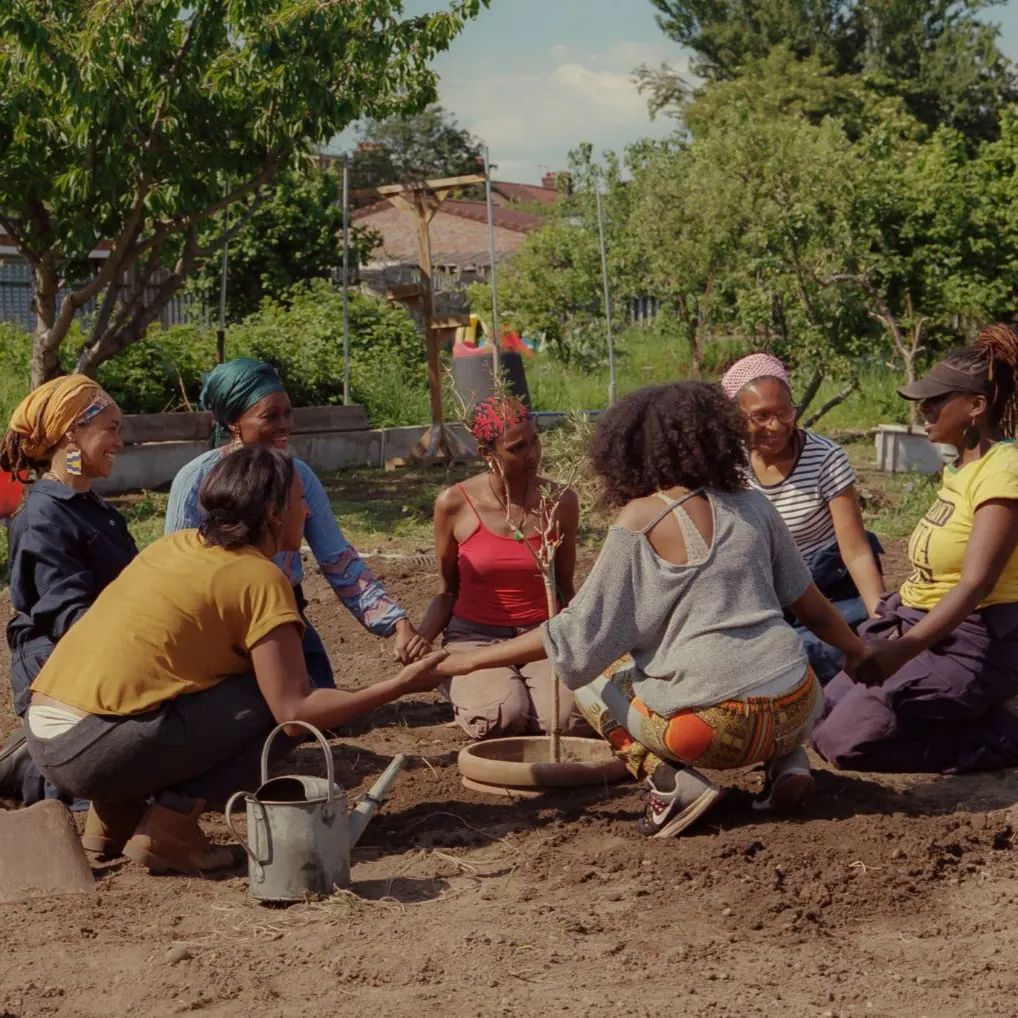
The racialised history of British soil has consequences that are very much felt today. However where industrial scale farming is failing, the grassroots is doing what it does best, building fertile ground for a new food system that nurtures diversity. High-profile agroecology events such as this weekend’s Land Skills Fair are spotlighting land justice. This is thanks to the work of many projects that together are gradually shifting the ground for land justice. Ursula Billington reports.
It’s another example of the small-scale farming movement holding the advantage over global mainstream agriculture. Market gardens and community farms are small enough to look inwards, responsive enough to look outwards, and nimble enough to pivot and reflect back what they see.
The first stage is the reckoning. A growing public debate around inequality and inclusion in the UK is driving a lot of discourse and the first breath of real change. Industrial agriculture and the traditional institutions of rural Britain often appear willing to ignore their own unjust foundations and oppressive dynamics. Whereas the arguably white, middle-class domain of the sustainable food movement seems increasingly unafraid to ruffle its own feathers.
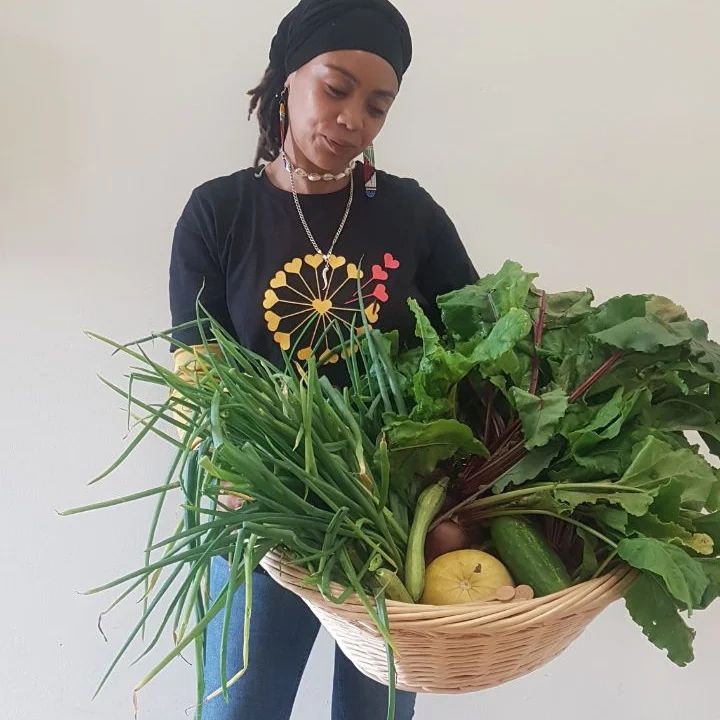
Agroecology is, once again, providing the solutions to complex problems that have been exacerbated by imposed global, industrial and capitalist-centric methods; walking the talk in placing the key principles of people care and diversity at the centre of the work. There’s a recognition that the overarching aims of social, environmental and food justice cannot be reached without bringing everyone on board, and that true social justice means embracing and catering for our differences, whether that’s different ways of working depending on land needs or different foods for different cultures.
No food justice or environmental justice without social justice means nature, land and sustainable, healthy food systems must be accessible to all, regardless of heritage, background or neighbourhood.
There’s a lot of work to do.
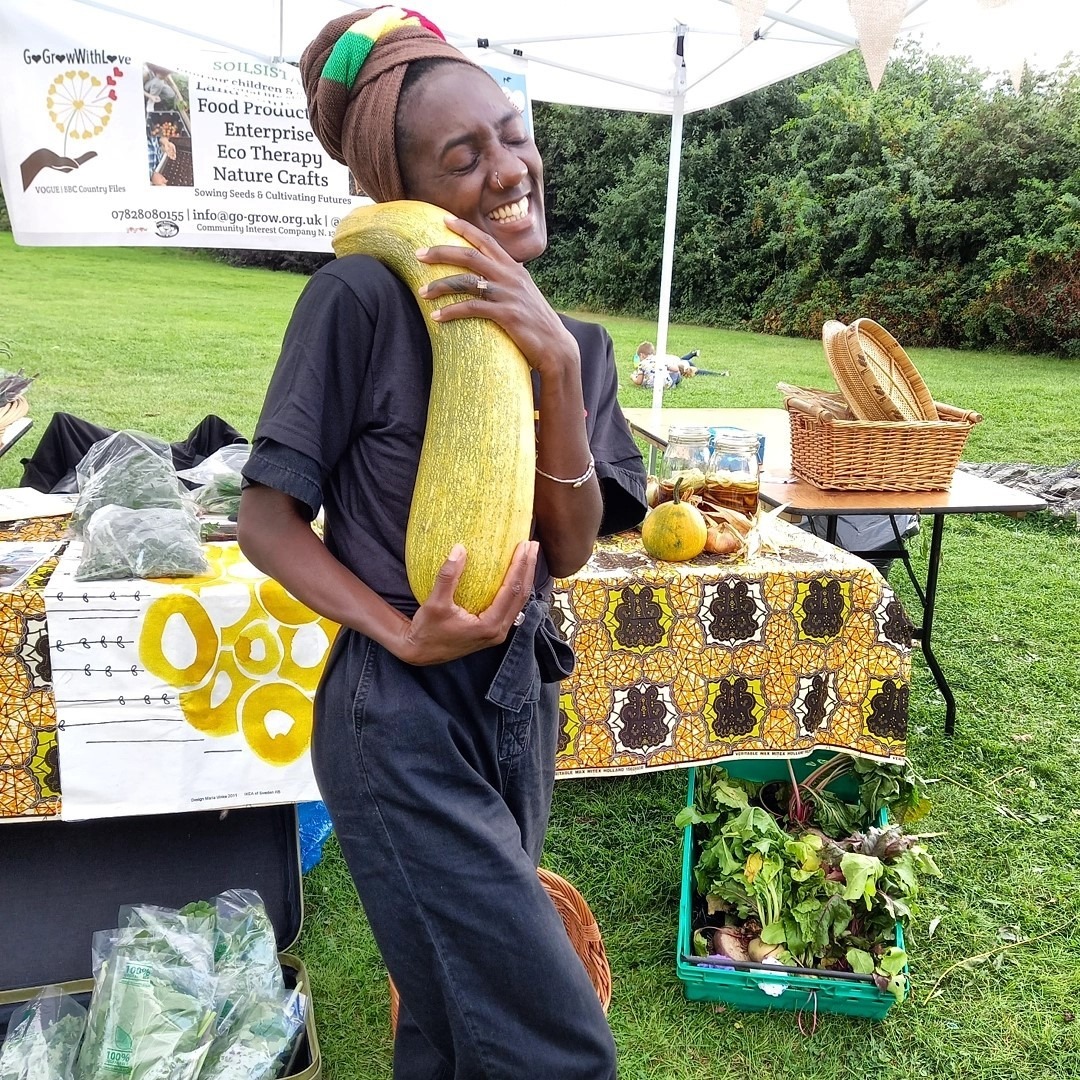
England has a long history of countryside enclosures and elitist land ownership. 50% of England is owned by less than 1% of the population, and only 10% of it is open access. Agriculture and horticulture are the least diverse occupations in the country, where only 1.4% farmers are non-white. Most Black and ethnic minority populations live in urban areas, where they have the least access to green space. As cause, consequence or a perfect storm of the two, only 3.5% environmental professionals come from an ethnic minority background.
Minority ethnic people are excluded from the benefits of engaging with the land, nature and food growing. Where spaces are overwhelmingly white, non-white people feel out of place. Where the countryside and its institutions are racist, people feel uncomfortable or afraid. Where representation is lacking, people feel these places and careers are not for them.
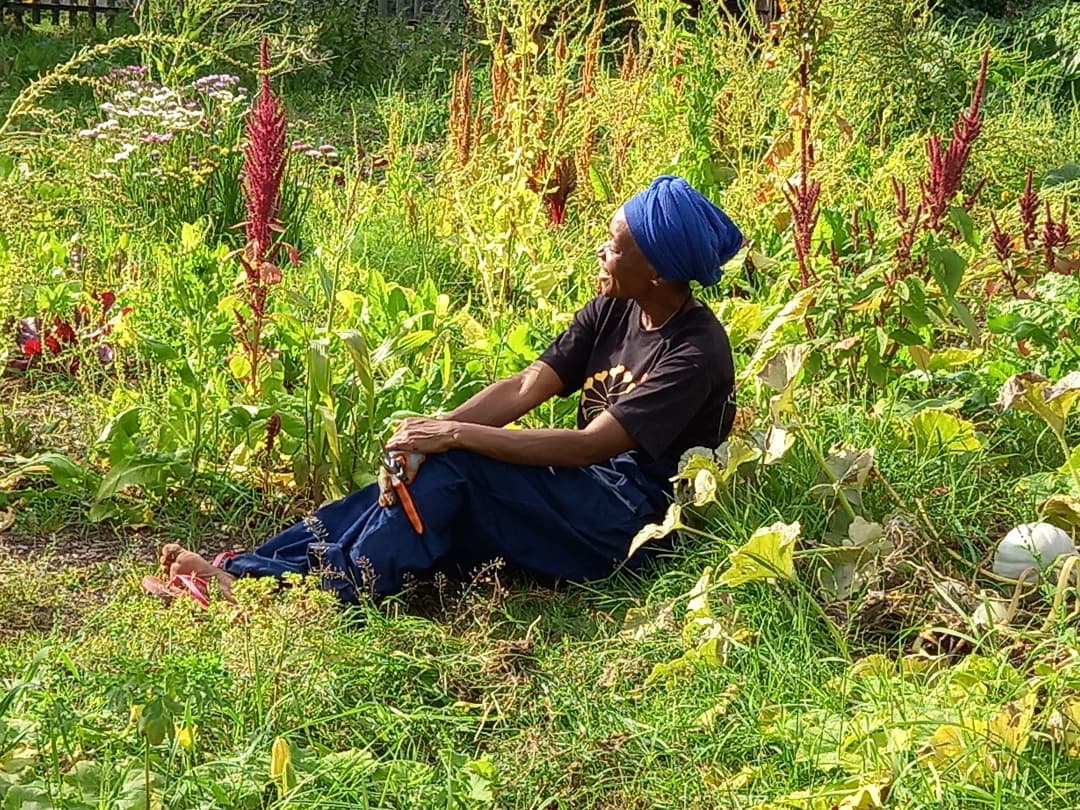
Rootz into Food Growing, a project dedicated to disrupting structural inequalities in UK food growing, explored some of the reasons behind this exclusion in a report last year: from centuries of privatisation of British land, a colonial countryside, and a cultural history of perception of Black nature-connection as primitive or inferior; from hostile attitudes in rural communities, to a countryside and food movement dominated by whiteness and white needs, to a whitewashed farming-related media. All contribute towards a generational disconnect whereby the natural environment loses its cultural significance. These are self-perpetuating problems, and they only scratch the surface of the embedded structural inequalities and psychological barriers that exist.
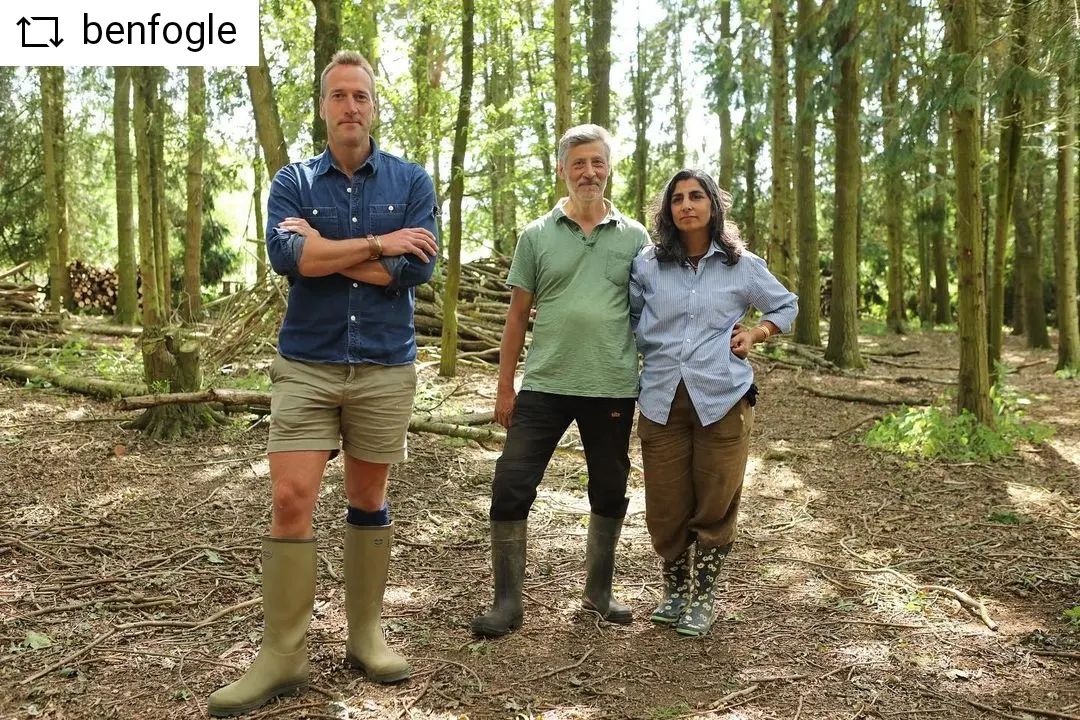
Digging deep, we find solutions in the grassroots: communities are soul-searching, rallying to self-empower and opening doors wider to encourage participation. The changemakers may be invisible to most, given “the criteria for being a farmer in the public imagination does not include small-to-medium scale, urban growers, social enterprises, or community food growing projects”. Even the UK’s leading organisations for food system change – such as Sustain, the Ecological Land Coop, the Sustainable Food Trust – whilst openly campaigning to remove barriers to new entrant agroecological farmers, rarely mention race or diversity as an issue. Typically, it is on a community-level that action is being taken.
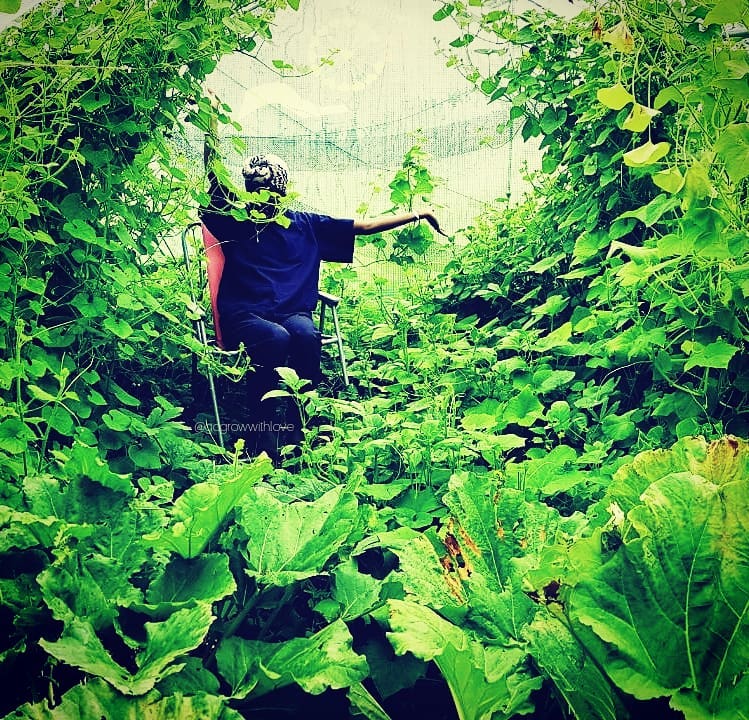
Black Rootz, London
Emerging from a community-based horticultural centre on recognition that growers should be more reflective of the local community, Black Rootz is reportedly the ‘first multigenerational Black-led growing project in the UK.’ Committed to Black empowerment and self-reliance, the project aims to generate income and support livelihoods whilst serving the local community with culturally-appropriate foods such as sweet potatoes and tomatillos. With over 100 years’ growing experience across the team, a further intention is to pass on traditional growing skills to ensure that indigenous and local food-growing knowledge is transferred to the next generation of Black and minoritized growers, “thus securing a legacy.”
“The need to develop a Black-led growers’ collective stems from a combination of individual, community and wider systemic needs, surrounding food security, sustaining livelihoods and the importance of Black and marginalised communities having control of critical community spaces and issues surrounding who owns the land and who’s excluded or exploited by it,” says team member William Washington Welch.
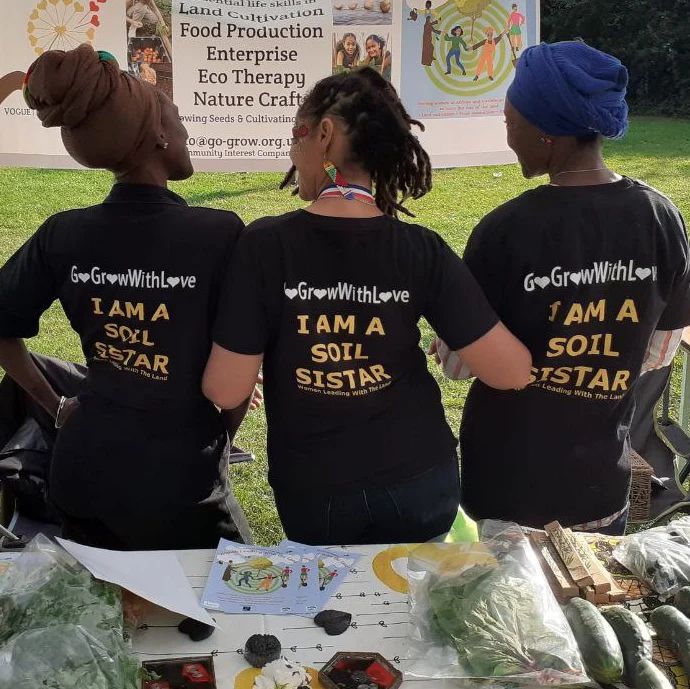
Go Grow With Love, London
The African-centred holistic femme-led project Go Grow With Love was started by SoilSistar Sandra in January 2020. It invites women of African and Caribbean heritage to reconnect to the land and develop skills. Sandra is positive about the contributions of these women to the sustainable land sector: “Melanin-rich women bring ancestral wisdom and cultural practices….as land workers. We share the art of storytelling and reverence for our indigenous ancient land. We honour and respect the land,” she says.
The project aims to support local food security and offer nutritional health that reflects the needs of local people, with heritage-appropriate foods that reduce reliance on imports. It’s based on a foundation of traditional African philosophy: the Akan tribal term Sankofa meaning ‘we must continue to go forward as we remember and honour our ancestral past and plant a seed for the generations after us,’ and also in the essence of agroecology – that soil regeneration can help foster a collective sense of wellbeing.
More on GGWL and other London-based African-centred food and farming projects here.
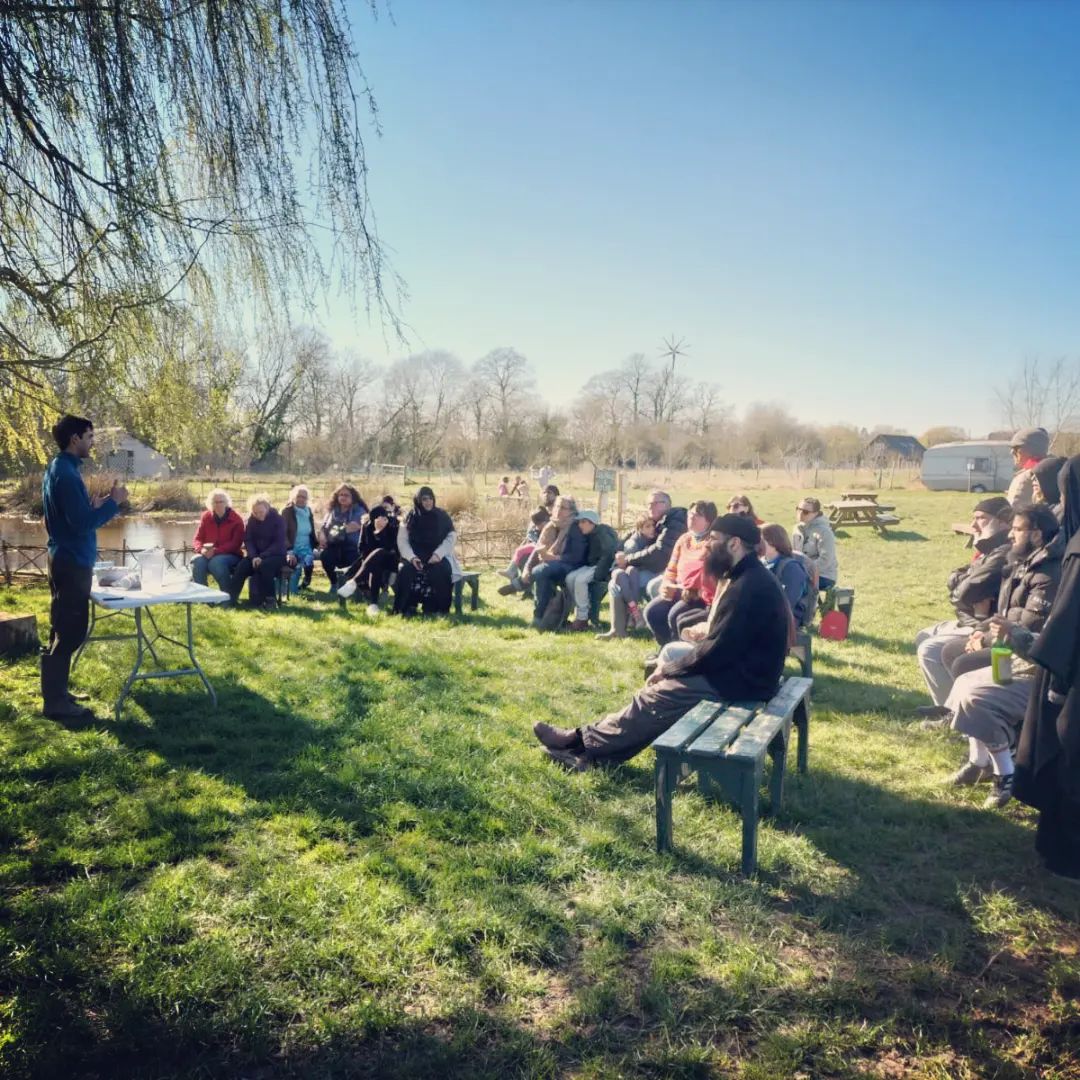
Land In Our Names (LION)
LION has become a powerful force driving the UK’s reckoning with its ‘oppressive land dynamics’, whilst pushing ahead with positive work reconnecting Black and People of Colour (BPOC) with land in Britain. They see land justice as central to addressing health inequalities, food insecurity and environmental injustice, stating, “Land rights are the basis for revolution and sovereignty in our communities”. Their ethos is rooted in traditional and indigenous ways of working the land, regenerative in nature. They say, “Some of our most cherished sustainable farming practices – from organic agriculture to the farm cooperative and the CSA – have roots in African wisdom.”
LION coordinated the first gathering for BPOC growers in England, attended by around 50 people of colour in January 2020. Dee Edwards, Landworkers Alliance BIPOC working group coordinator, reflected on its importance: “The day resonated deeply in mixed emotional expressions of sorrow, celebration and connection and a brief exploration of long held reflections about identity, land and farming…colonialism, ownership, belonging, dispossession and landless histories.”
The leading agroecology organisations are taking note and welcoming LION input at their events: this year’s Oxford Real Farming Conference, the UK’s largest agroecology gathering, included a LION-curated strand on race and land justice for the first time; and this weekend’s Land Skills Fair, a meeting of the ecological food, land and climate justice movement, has partnered with LION to programme a Social Justice space considering subjects such as Jewish farming, BPOC food systems and access to the commons.
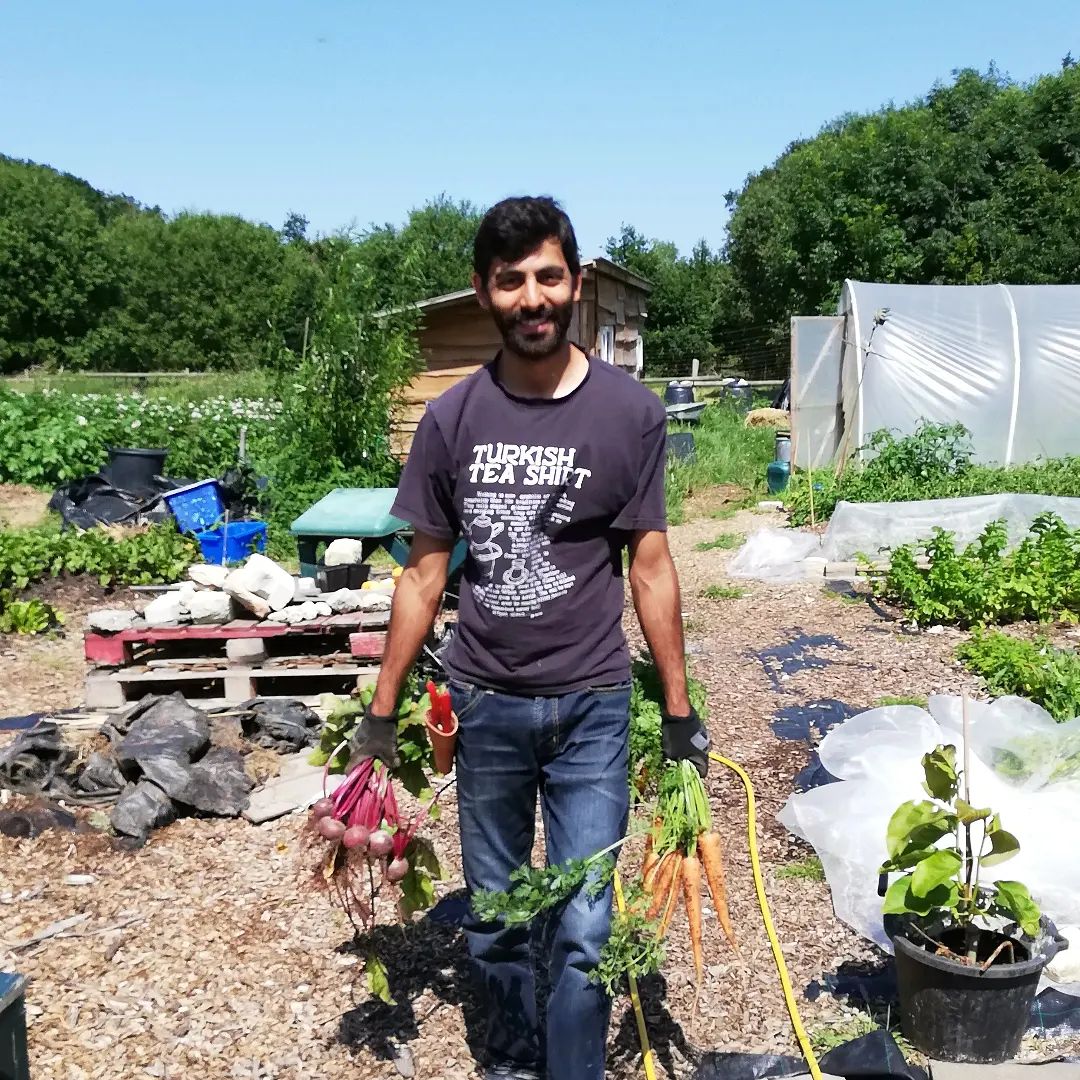
Willowbrook Farm, Oxford
Willowbrook Farm is the UK’s first Halal and Tayyib farm, founded on Islamic principles by the Radwan family 17 years ago. They practice ethical farming and stewardship, meaning natural and sustainable – without chemicals, medication or hormones, for animals or land. They focus on livestock’s ‘physiological and behavioural needs’; the long-term fertility and biological activity of soils; biodiversity; and local supply chains and systems. The fundamental philosophy behind this approach is, ‘To take seriously the role of steward for God’s creation (Khalifa), to produce food naturally and sustainably (Tayyib) – and to be grateful for the food we receive (Halal).
They also seek to remove barriers to land access for marginalised groups, such as providing supported access to their farm and events for people on low incomes, refugees, Black, Asian and ethnic minority (BAME), disabled and vulnerable people.
Their own farm is steeped in a history of rebellion and the common man’s fight for justice; the Radwans highlight the story of the farm’s role in protest against the enclosures – or “state sanctioned land theft” – and a plot to overthrow the ruling cliques, concluding: “that rebellious spirit, striving for social justice, still resides in the soil of the land. We honour the sacrifice of our farming ancestors.”
The Radwans are on the On Jimmy’s Farm podcast here.
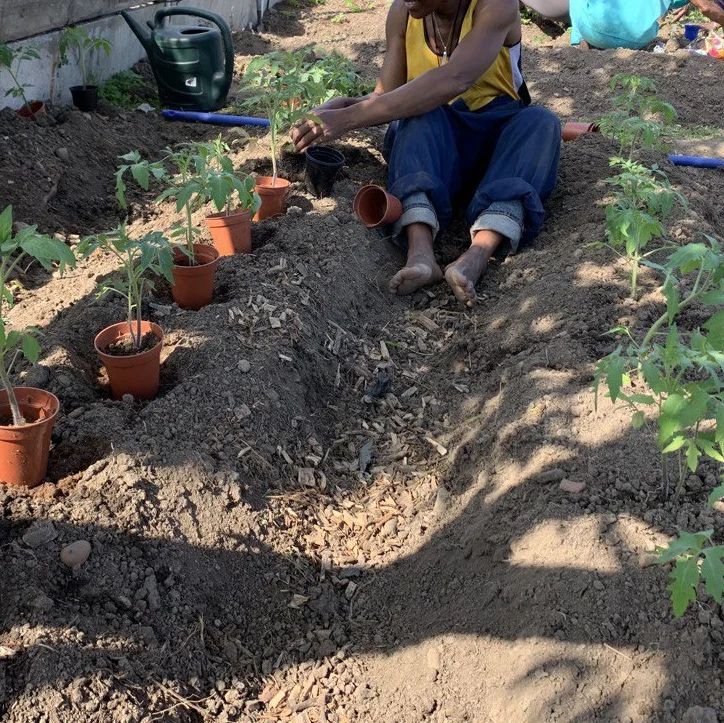
St. Werburghs City Farm, Bristol
Recognising its failings in providing for the whole spectrum of the local community, St. Werburgh’s city farm commissioned the Equity Project report to get to the heart of the problem. Co-author Manu Maunganidze highlighted the importance of urban farms in connecting ethnic minority people with nature: “These places are on the frontline of a social justice fight to allow diverse communities to be more fully engaged with the land, with the place that they live. They give urban children the opportunity…to imagine a future in food and farming… We’re facing the reality of a sizable chunk of the population not being in any way connected to the land in the first place. What are the repercussions of that? In whose name is that food sovereignty?”
It’s not only food sovereignty that’s impacted; access to land is clearly related to good health and wellbeing. The Latin American concept of ‘buen vivir’ – wellbeing – has become popular as a positive alternative to Western focus on progress and development. In many indigenous communities, values and beliefs associated with wellbeing are often embedded in local food production and its role in culture, identity, dignified livelihoods and self-determination.
The Farm in Bristol is now working to remove financial, cultural and other barriers to access, provide accessible facilities, improve the value of their offer and implement many other recommendations to make the farm welcoming and enjoyable for people of all backgrounds.
More on the UK
Bristol Bites Back | Fruits & Roots of Radical Resilience in South-West England
Oxford Real Farming Conference 2022 | New Dawn For Solidarity
UK Post-Brexit Farm Schemes – Revolution, Evolution or Anti-climax?
The True Cost of Britain’s Addiction to Factory-Farmed Chicken



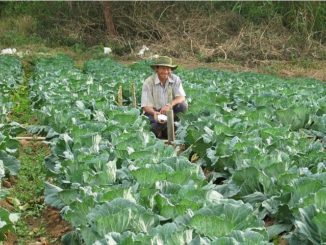

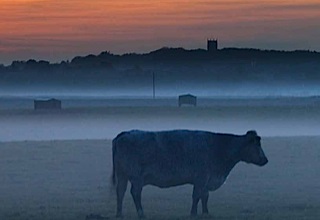
2 Trackbacks / Pingbacks
Comments are closed.